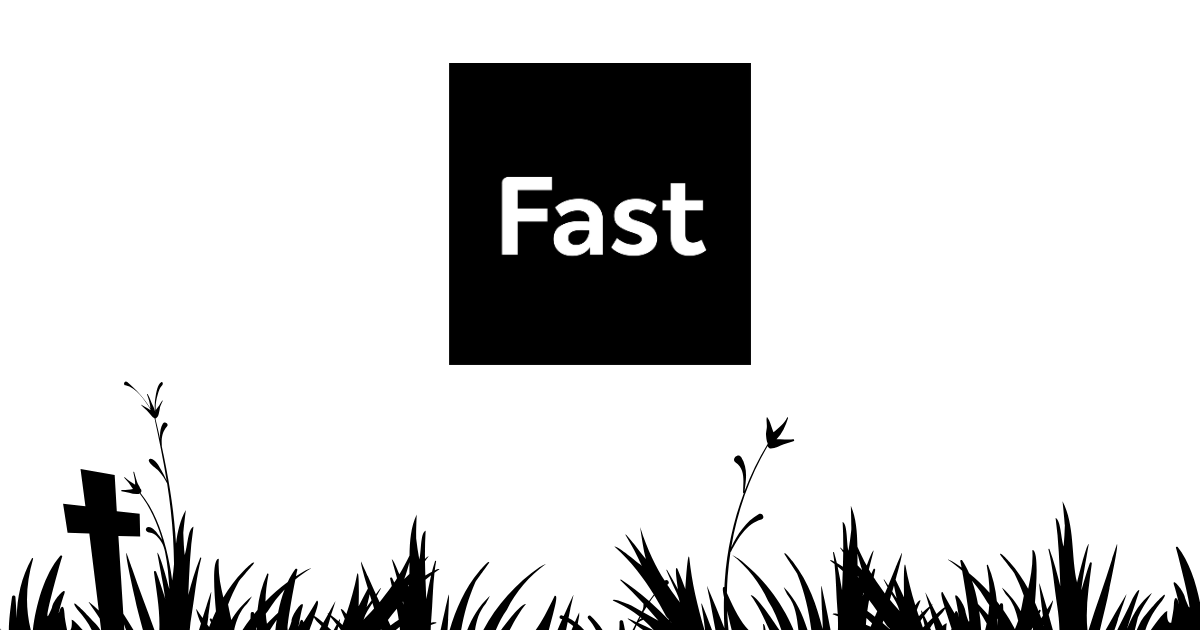Fast: The Story of a Startup That Burned Bright and Burned Out

Fast, the one-click checkout startup, rose quickly in the e-commerce space with a bold vision of simplifying online transactions. Yet, despite raising over $120 million in funding, it shut down in April 2022, just three years after its founding. Below, we examine Fast’s journey, highlighting its innovations, missteps, and lessons for aspiring entrepreneurs.
Fast’s Vision and Innovations
Core Mission: Founded in March 2019 by Domm Holland and Allison Barr Allen, Fast aimed to create a universal one-click checkout experience, eliminating the need for users to create multiple accounts across e-commerce sites.
Key Product Features:
One-Click Checkout: Customers could save payment credentials once and use them across a growing network of merchants.
Cross-Platform Usability: Fast allowed checkout not just on merchant websites but also directly from product listings.
Merchant Benefits: Features like post-purchase batching aimed to drive additional sales for merchants.
Market Timing: The expiration of Amazon’s one-click checkout patent in 2017 opened opportunities for innovation in the e-commerce payment space. Fast sought to capitalize on this, positioning itself against players like PayPal, Shopify, Bolt, and Apple Pay.
The Fall of Fast: Key Missteps
1. Unsustainable Spending
By late 2021, Fast was burning $10 million per month while generating just $600,000 in annual revenue.
Extravagant expenditures included:
A $1 million Chainsmokers performance at a retail conference.
Lavish perks and corporate retreats.
Aggressive hiring that expanded the team from 90 to 400 employees in less than a year.
2. Lack of Product-Market Fit
Merchant Reluctance: Many merchants preferred to offer multiple checkout options rather than committing to Fast’s platform.
Customer Confusion: The product didn’t resonate strongly with consumers who were already accustomed to established payment options like PayPal or Apple Pay.
Crowded Space: Fast failed to sufficiently differentiate itself in an already competitive market.
3. Overexpansion Without Validation
Fast grew its team and operations aggressively before proving the scalability or profitability of its product. This rapid growth strained resources and added complexity.
4. Fundraising Challenges
In 2022, Fast struggled to secure additional funding:
Investors were hesitant to commit amid broader market uncertainty and the company’s high burn rate.
Attempts to reduce valuation and cut workforce size failed to restore confidence.
5. Leadership Challenges
CEO Domm Holland’s overconfidence and aggressive expansion strategy were criticized as contributors to the company’s premature scaling and failure to adapt.
Closure and Legacy
Fast officially shut down on April 5, 2022, with many employees transitioning to roles at Affirm, which absorbed part of Fast’s engineering team. The collapse sparked widespread industry discussions about startup overspending and the importance of sustainable growth.
Broader Impact
Industry Insight: Fast’s failure highlighted the risks of prioritizing rapid growth over foundational stability, especially in competitive markets.
Reinforcing Lessons: The importance of achieving product-market fit and maintaining disciplined financial management were underscored for startups worldwide.
Lessons Learned
1. Ensure Product-Market Fit Before Scaling
A promising idea alone isn’t enough. Fast’s premature scaling without validating its market fit led to misaligned growth and low adoption rates.
2. Focus on Financial Discipline
The company’s extravagant spending eclipsed its revenue potential, emphasizing the need for lean operations during early stages.
3. Adapt to Market Dynamics
Fast’s inability to differentiate itself from established competitors with trusted payment solutions hindered its ability to secure both merchants and consumers.
4. Build Investor Confidence Through Transparency
Startup leaders must balance ambition with transparency, addressing investor concerns about burn rates, scalability, and long-term viability.
Fast’s Report Card
Dimension | Score | Reasoning |
|---|---|---|
Product-Market Fit | 3/5 | Strong concept but failed to resonate broadly with merchants and consumers. |
USP | 3/5 | Innovative vision but insufficient differentiation in a crowded market. |
Timing | 4/5 | Entered at an ideal time, but execution didn’t capitalize on the opportunity. |
Founder Fit | 3/5 | Visionary leadership undermined by overconfidence and strategic missteps. |
Team (Execution) | 2/5 | Mismanaged scaling and spending hurt operational effectiveness. |
Conclusion
Fast serves as a cautionary tale for startups that prioritize speed and ambition at the expense of disciplined execution and market validation. While its vision for a universal one-click checkout was promising, the company’s lack of focus, unsustainable growth strategy, and inability to stand out in a competitive landscape ultimately led to its demise. Aspiring entrepreneurs can learn from Fast’s story by prioritizing validation, financial discipline, and adaptability to build a more resilient foundation for growth.
I hope Fast’s story highlights the importance of product market fit and the perils of delaying it in your venture.
Cheers,
Ram

👉 Simple ask: If you found it helpful, please forward this email to at least one other founder that you know. The startups we cover are diverse and can help any entrepreneur. You score extra points for sharing on your social media
